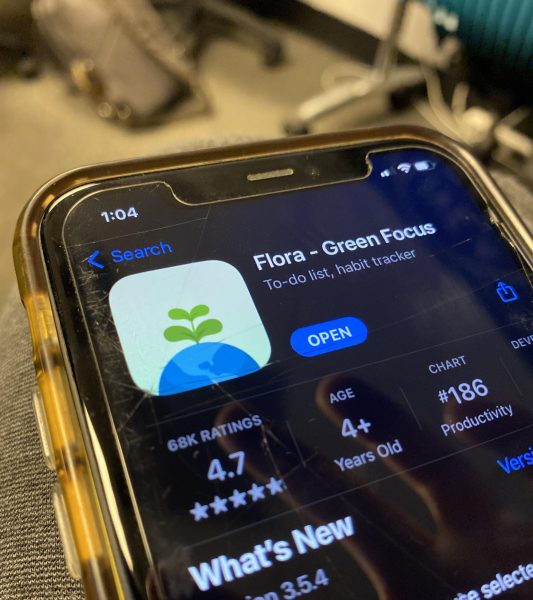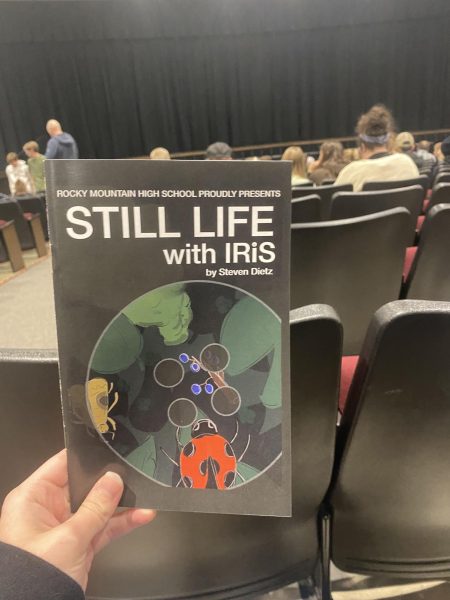Mental Health Matters
On Monday, April 17th, Rocky Mountain High School hosted the Mental Health Matters event. This event was for anyone who wanted to learn a little bit more about mental health and how to work through different things.
There were twenty break-out rooms that covered a whole host of different health topics including, mental health in schools, substance abuse, crisis intervention, and working with kids.
Some of the breakout rooms had specific focuses and target audiences including, elementary focused, middle-school focused, high-school focused, and rooms great for staff and family. Also, several of the events were in Spanish or had Spanish translations.
Apart from these breakout rooms, there were about 30 booths of a multitude of different mental health organizations and resources you could talk to and utilize.
The event started with a keynote Aaron Wiemeier, a therapist, who spoke on navigating the trauma caused by Covid.
Aaron has worked with trauma for 25 years both in private practice and as a school dean for four years. Most of his private practice experience was spent entering homes with high levels of dysfunction and trauma and helping the members of those families.
After all of his extensive experience working with and around trauma he has several insights that he shared with the audience.
The main point of his speech was the effects of secondhand trauma. He communicated this to the audience through his own personal experience dealing with second hand trauma.
He spoke about how his experience working with kids’ fear of abandonment and trauma responses had become part of his subconscious and he didn’t realize it until he watched a movie with a similar story of abandonment and started sobbing in the audience. He personally had no first-hand abandonment trauma but after working with so many people who had it became a trigger for him.
He also explained his emotional responses to Pandemic happenings in Italy that were also heavily second hand trauma responses.
All of his stories were to show how the pandemic has affected so many people without them necessarily processing it.
Mixed in with his stories were data points and hopeful warnings.
He explained why he was so easily able to remember the small details of the traumatic events. Apparently, once the brain becomes aware of a dangerous or potentially traumatic situation it will vividly record all relevant information.
This is a lot of information considering the brain processes 100 million bits of data per second. He also explained that the brain is wired to notice negative stimuli first. Both of these reactions are protective instincts that have kept the human species alive.
This sounds scary and like the brain is wired to remember only the bad however Aaron noted, “We are neurologically built to heal.” All you need is awareness of what is going on and what has happened.
Aaron says “Awareness is power…once you become aware it is harder to live in ignorance.”
If you put the effort into finding a problem you will no longer be able to live with that issue once you have discovered it. Therefore you will fix the problem, or find someone to help you do so.
Aaron finished his speech with a warning and some good advice.
He warned that “the tsunami is coming.” Meaning the effects of the pandemic and all the trauma that it caused is about to present itself in full force, and we need to be ready.
His advice was, “Take one thing you learn today and share it.” If the information isn’t shared amongst the community it stays in the Rocky Auditorium and can’t do any good to the whole.
Remember, it’s okay to ask for help, awareness is power, and take something with you.
Your donation will support the student journalists of Rocky Mountain High School - CO. Your contribution will allow us to purchase equipment and cover our annual website hosting costs.






Anonymous • Sep 28, 2023 at 10:43 am
Yeah sure ya’ll care about mental health. You know I had a panic attack, hyperventilated, and passed out a few weeks back and when I tried to talk to someone about it I was shunned out of the room. But you know what they say, You can’t spell PTSD without PSD :/